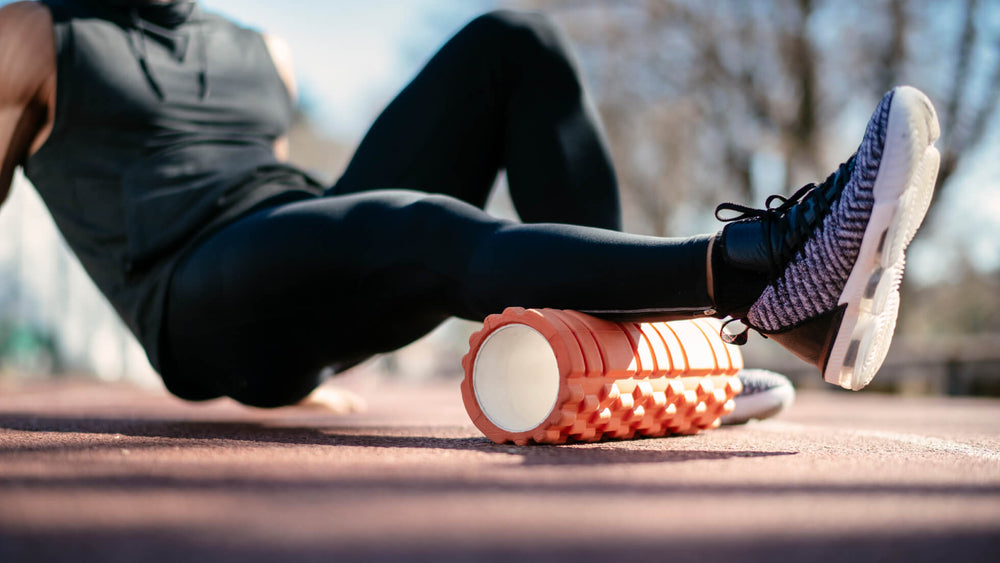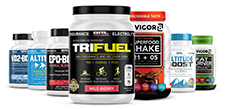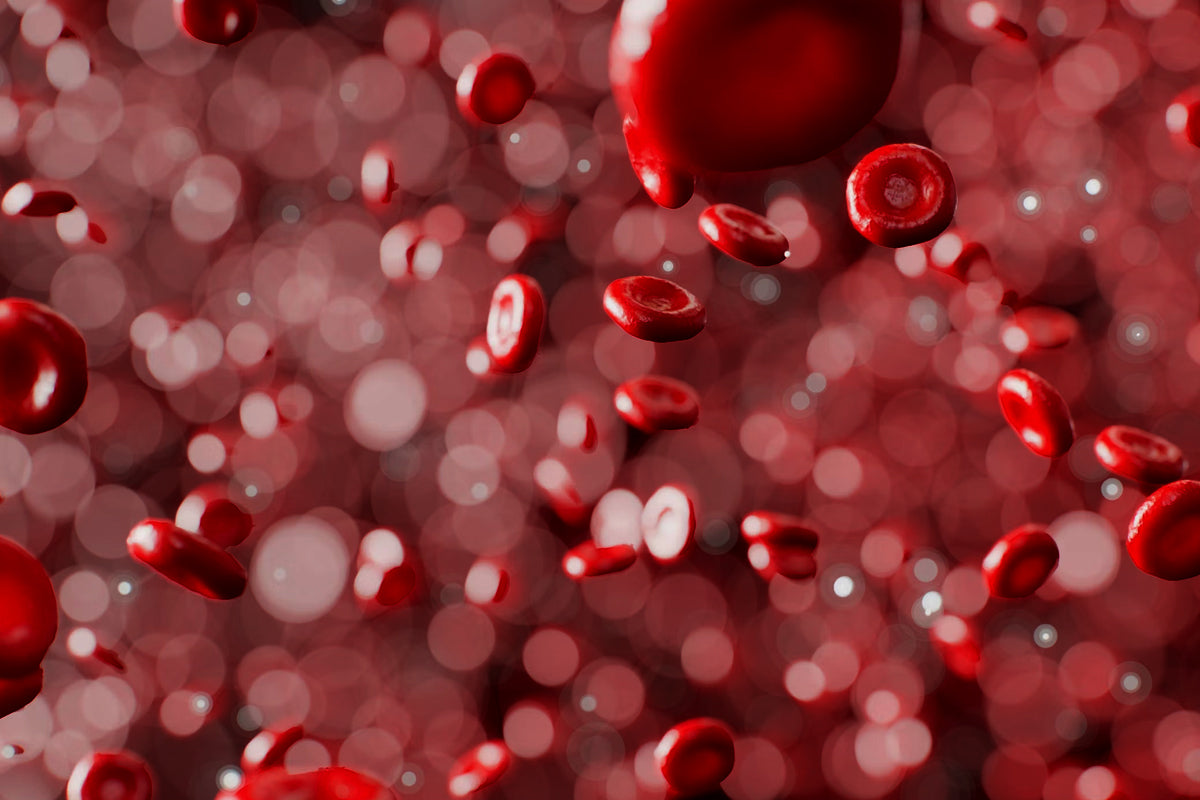Skincare Routines for Athletes: 7 Sports-Specific Tips

Working out is great for virtually every aspect of your health, but there might be one exception to this rule — it’s not necessarily great for your skin.
You might have already noticed this effect in your own life. As the miles pile up and you get fitter and faster, your body fat drops, your muscles get more defined . . . and your skin gets more weathered.
What gives? Some aspects of your active lifestyle may actually be hurting your skin health. Fear not, however — the following skincare tips will help ensure your workout routine is just as good for your glow as it is for your body.
- Skincare: why it’s not just skin-deep
- Working out: good or bad for your skin?
- Tip 1: gentle cleansing
- Tip 2: gentle exfoliating
- Tip 3: hydration!
- Tip 4: sunscreen
- Tip 5: sleep
- Tip 6: destress
- Tip 7: special nutrients
Skincare: why it’s not just skin-deep
“Healthy skin is a reflection of overall wellness. Skincare is healthcare.”
- Dr. Howard Murad, the father of internal skincare [1]
Skin health isn’t just superficial. Your skin is actually your body’s largest organ, and health experts from various backgrounds testify that skin health speaks volumes about what’s going on deeper beneath the surface.
Skincare isn’t just superficial, either. Many of the same tips and tricks that benefit your skin are also likely to benefit your overall health! More on these tips and tricks coming up next . . .
Working out: good or bad for your skin?
Intense physical activity can damage sensitive skin in a variety of ways. While getting your lymphatic system moving and sweating out toxins are both undeniably good for your skin, it’s possible to have too much of a good thing.
Workouts that subject you to harsh rays and chronically harsh stress hormone levels are likely to have a ‘wasting’ effect on delicate tissues, notably the thin skin on your hands and around your eyes. It’s no surprise you sometimes see these features in elite endurance athletes.
The harder you’ve been training, the more likely it is that you’ll need to take specific measures to nourish your skin. Otherwise overtraining can lead to problems like skin dryness, chronic irritation, and fine line development!
All that said, here are some tips to keep your skin looking as good as you feel.
Tip 1: Gentle cleansing
Think of gentle cleansing as a foundation upon which to build other parts of your skincare routine. This practice is especially critical for athletes, whose over-the-road training exposes them to extra dirt, dust, and environmental pollutants.
Cleansing your skin twice a day (once after workouts) is important to remove these impurities. You can cleanse with warm water or a gentle cleanser (just make sure it’s sulfate-free). This can help remove skin impurities and reduce your chance of developing breakouts.
Tip 2: Gentle exfoliating
Exfoliation is a process of gentle scrubbing that helps your skin remove dead skin cells, setting the stage for the regeneration of new ones. Exfoliation can also be done with chemical exfoliants like glycolic acid, citric acid, and salicylic acid.
Exfoliation only needs to be done a couple of times a week; overdoing it could weaken your skin barrier. "Doing so can disrupt your natural skin barrier, stripping away oils that help skin repair," explains dermatologist Jeannette Graf. [2]
The right amount of exfoliation, however, can serve as an effective catalyst for quicker regeneration and soft, dewy skin. Exfoliation also opens up your pores and sets the stage for the step that follows . . .
Tip 3: Hydration!
Here’s another skincare tip: hydrate, hydrate, hydrate! Athletes are drastically more susceptible to dehydration than most other groups, and this dehydration can easily age your skin.
Hydration can come from the inside out (your cells make water when they create energy), or from the outside in. If you really want to dial in your skincare, you’d be wise to pursue both!
- You can hydrate from the inside out by drinking plenty of water, ingesting the right ratios of electrolytes, and focusing on your general health. Comprehensive intraworkout hydration means you won’t have to attempt to undo any damage in the postworkout period.
- You can hydrate from the outside in by being gentle with your skin barrier and using a daily moisturizer. Good moisturizers for dry skin include lanolin, tallow, and jojoba oil. If a moisturizer causes clogging, simply change things up. Humectants like raw honey can also help your skin ‘lock in’ moisture after a long day out in the elements.
Tip 4: sunscreen
Protecting your skin from the sun is right up there alongside gentle cleaning when it comes to the most essential facets of your skincare routine. Select a broad spectrum sunscreen that’s SPF 30 or more. Sunscreen can prevent premature aging by giving your skin a sheltered place to regenerate.
Not using sunscreen, on the other hand, allows UV rays to break down collagen matrices in your skin - leading to an older, more weathered look. [3]
Pro tip: apply sunscreen liberally, even on cloudy days. You can also ‘prep’ your skin for sun exposure with a red light device.
Tip 5: sleep
Sleep is one of the most underrated recovery tools . . . even for your skin. Sleep improves your hormonal status away from catabolism and toward anabolism and regeneration, potentially leading to improved skin health.
If you’re not sleeping enough, you’re probably training too much. See how you feel after a few nights of sleeping 9+ hours per night. We bet your training (and your skin health) will thank you for it.
Tip 6: destress
Stress might be the biggest killer of skin health of all. Stress of virtually any kind causes your body to release cortisol, a catabolic hormone that essentially eats away at skin and other connective tissues. Cortisol may also cause transepidermal water loss, where the skin becomes dehydrated and unable to ‘hold onto’ water.
According to Dr. Howard Murad, poor health and poor skin alike are caused largely by the stress inherent to modern culture. So be sure to slow down every once in a while! Instead of training progressively harder week after week, see if you can find your minimum effective dose. Get plenty of good sleep, eat plenty of good food, and avoid overtraining at all costs.
Tip 7: Special nutrients
Certain nutrients may support skin health, too, including CBD, cordyceps, and antioxidants like quercetin. Let’s take a look at CBD first.
Short for cannabidiol, CBD may reduce stress by helping optimize hormones like cortisol, norephedrine, and epinephrine. By reducing stress, CBD could put you in the perfect position to enjoy less inflammation and better skin health. But more on CBD and other pro-skin nutrients next time . . .
Author: Thomas Wrona
Date: 3/27/2024
Sources
- Dr. Howard Murad. Retrieved 2024.
https://drhowardmurad.com/ - Allure. 2023.
https://www.allure.com/story/how-to-exfoliate - Jariashvili K, Madhan B, Brodsky B, Kuchava A, Namicheishvili L, Metreveli N. UV damage of collagen: insights from model collagen peptides. Biopolymers. 2012
https://pubmed.ncbi.nlm.nih.gov/22002434/
Take the next step in your training regimen: Try any BRL Sports supplement risk-free! If our natural nutritional products aren’t the best you’ve ever used, simply return your purchase for a 100% refund — no questions asked!
Also in Health and Wellness Blog





